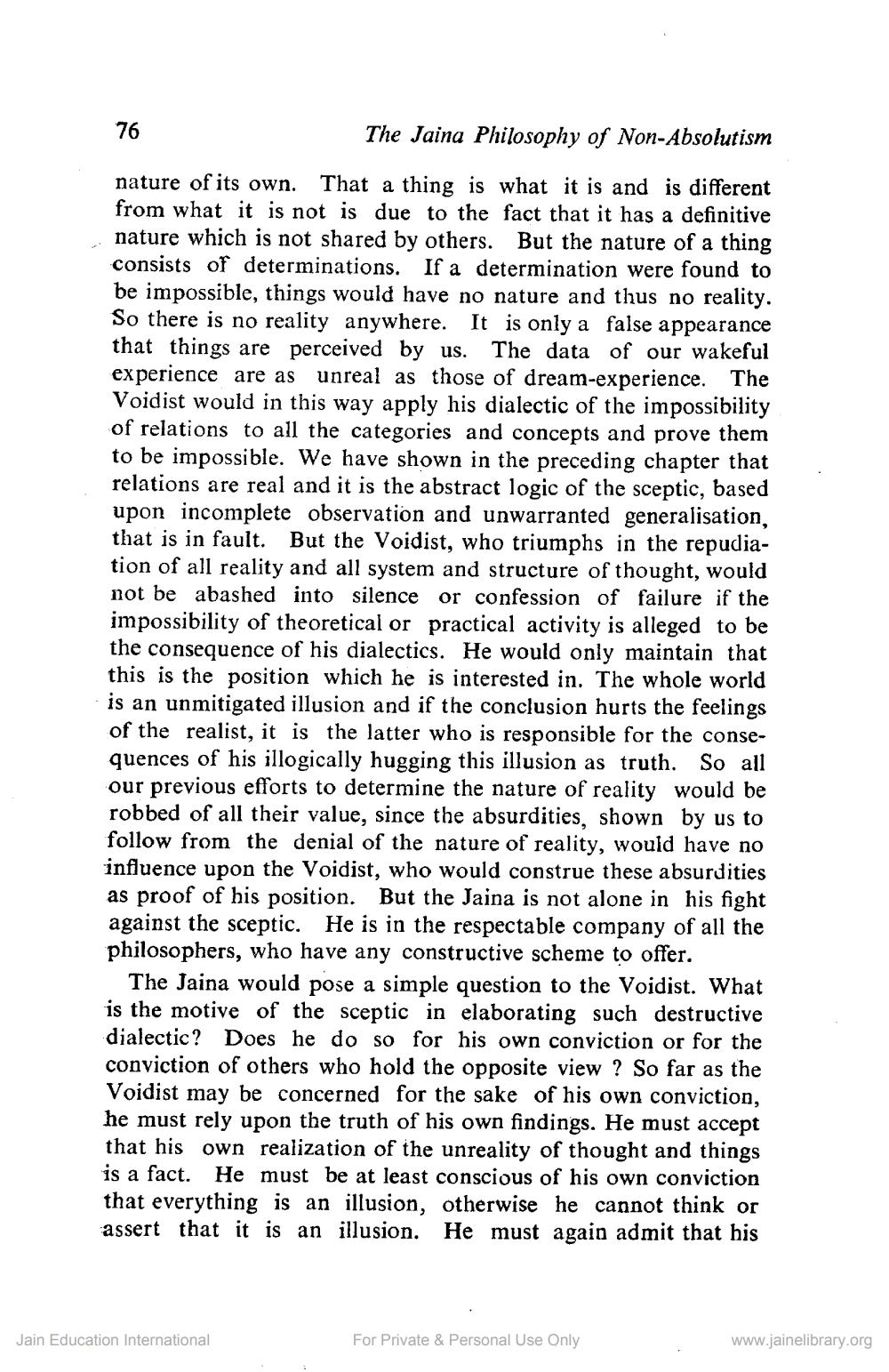________________
76
The Jaina Philosophy of Non-Absolutism
nature of its own. That a thing is what it is and is different from what it is not is due to the fact that it has a definitive nature which is not shared by others. But the nature of a thing consists of determinations. If a determination were found to be impossible, things would have no nature and thus no reality. So there is no reality anywhere. It is only a false appearance that things are perceived by us. The data of our wakeful experience are as unreal as those of dream-experience. The Voidist would in this way apply his dialectic of the impossibility of relations to all the categories and concepts and prove them to be impossible. We have shown in the preceding chapter that relations are real and it is the abstract logic of the sceptic, based upon incomplete observation and unwarranted generalisation, that is in fault. But the Voidist, who triumphs in the repudiation of all reality and all system and structure of thought, would not be abashed into silence or confession of failure if the impossibility of theoretical or practical activity is alleged to be the consequence of his dialectics. He would only maintain that this is the position which he is interested in. The whole world is an unmitigated illusion and if the conclusion hurts the feelings of the realist, it is the latter who is responsible for the consequences of his illogically hugging this illusion as truth. So all our previous efforts to determine the nature of reality would be robbed of all their value, since the absurdities, shown by us to follow from the denial of the nature of reality, would have no influence upon the Voidist, who would construe these absurdities as proof of his position. But the Jaina is not alone in his fight against the sceptic. He is in the respectable company of all the philosophers, who have any constructive scheme to offer.
The Jaina would pose a simple question to the Voidist. What is the motive of the sceptic in elaborating such destructive dialectic? Does he do so for his own conviction or for the conviction of others who hold the opposite view ? So far as the Voidist may be concerned for the sake of his own conviction, he must rely upon the truth of his own findings. He must accept that his own realization of the unreality of thought and things is a fact. He must be at least conscious of his own conviction that everything is an illusion, otherwise he cannot think or assert that it is an illusion. He must again admit that his
Jain Education International
For Private & Personal Use Only
www.jainelibrary.org




